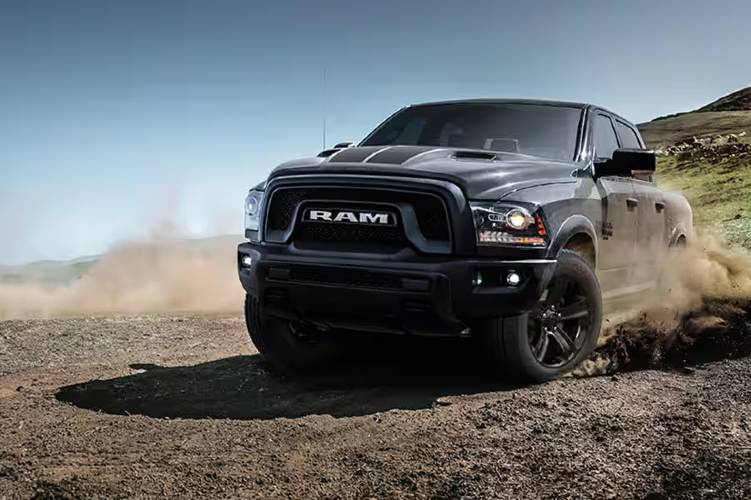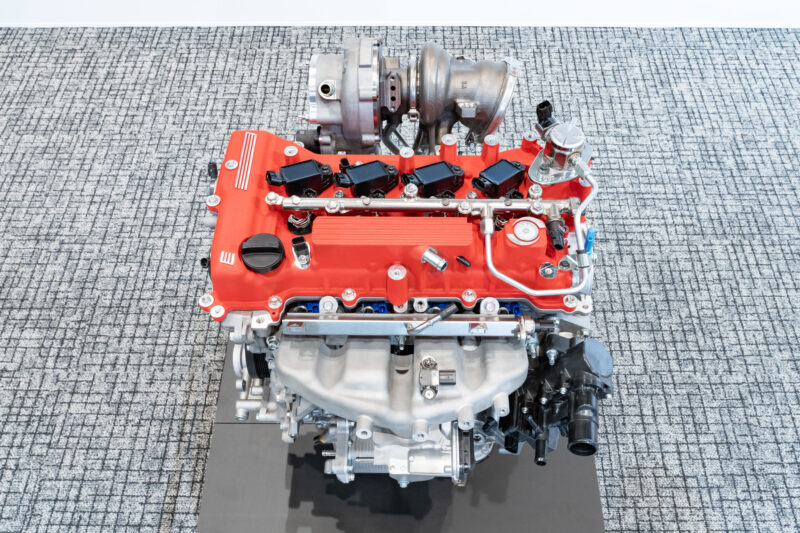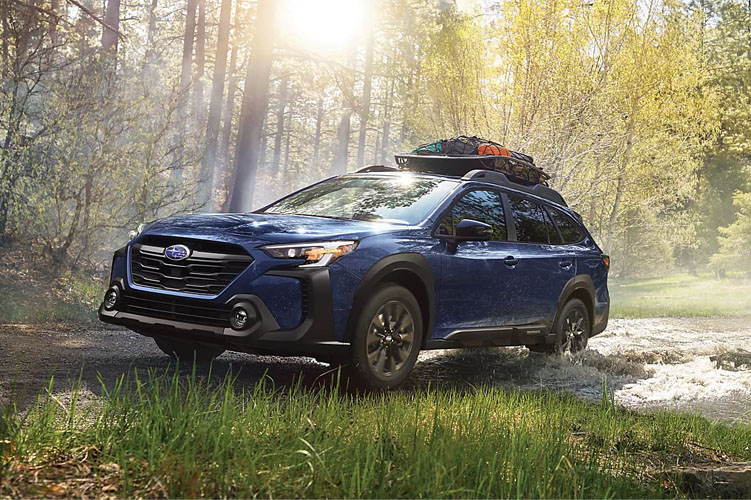


The used truck market can be a complex landscape to navigate, especially for first-time buyers or those unfamiliar with the industry's nuances. Unlike new vehicles, used trucks come with their own set of considerations, from mileage and wear to previous ownership history. To make an informed decision, it's crucial to understand the factors that influence pricing and availability in this market.
One key aspect to consider is the cyclical nature of the automotive industry. Just as new car models are released on a schedule, the used truck market also experiences fluctuations throughout the year. Various factors can influence these fluctuations, including seasonal demand, economic conditions, and even regional preferences.
For instance, as the cold season approaches, the demand for trucks with four-wheel drive capabilities might spike in areas with harsh winters. Conversely, such seasonal shifts might be less pronounced in regions with milder climates. Understanding these patterns can give buyers an edge when searching for the best deals.
Another important factor is the overall economic climate. During economic downturns, more people might turn to the used vehicle market, potentially driving up prices due to increased demand. Conversely, during periods of economic growth, there might be more options available as people upgrade to newer models.
It's also worth noting that the used truck market can vary significantly from one region to another. What might be considered a great deal in one area could be overpriced in another. This is why it's essential to research local market conditions and compare prices across different auto dealers near you.
When it comes to purchasing a used truck, timing can play a crucial role in getting the best deal. While there's no universally perfect time to buy, certain seasons tend to offer more favorable conditions for buyers.
Spring is often considered a good time to shop for used trucks. As the weather improves, more people start thinking about outdoor activities and projects that require a truck. This increased interest can lead to a wider selection of dealerships. However, this heightened demand might also result in slightly higher prices.
Summer, particularly towards the end of the season, can be an excellent time to find deals. Many auto dealerships near me have started clearing out their inventory to accommodate newer models. This can lead to attractive discounts on used trucks, especially those from the previous model year.
Fall is another season worth considering. As new models hit the market, dealers may be more motivated to move their older inventory, including used trucks. This can result in competitive pricing and potentially more room for negotiation.
Winter, especially around the holiday season, can offer unexpected opportunities. While fewer people might be shopping for vehicles during this time, those who do venture out might find dealers more willing to negotiate to meet end-of-year sales targets.
It's important to note that these seasonal trends can vary depending on your location. For example, in areas with harsh winters, the demand for trucks might actually increase during the colder months, potentially affecting prices.
The release of new truck models can significantly impact the used truck market. Understanding this relationship can help buyers time their purchases more effectively.
Typically, new truck models are released in the fall, around September or October. As these new models hit the market, dealerships often offer incentives to clear out the previous year's inventory. This can create a ripple effect in the used truck market.
When new models are introduced, some truck owners may decide to upgrade, trading in their current vehicles. This influx of trade-ins can increase the supply of used trucks at dealerships, potentially leading to more competitive pricing.
Additionally, as newer models become available, the perceived value of older models may decrease slightly. This doesn't necessarily mean older models are less reliable or functional, but it can lead to more favorable pricing for buyers in the used market.
However, it's important to note that the impact of new model releases can vary depending on the specific make and model of the truck you're interested in. Some truck models retain their value exceptionally well, even with the release of newer versions.
For buyers, this means that the weeks and months following new model releases can be an opportune time to shop for used trucks. Not only might there be a wider selection available, but dealers may be more willing to negotiate on price to move their inventory.
The state of the economy plays a significant role in shaping the used truck market. Understanding these economic factors can help buyers make more informed decisions about when to purchase.
During periods of economic growth, people generally have more disposable income. This can lead to increased demand for both new and used vehicles, potentially driving up prices. However, it may also mean that more people are trading in their current vehicles, leading to a larger selection of used trucks on the market.
Conversely, during economic downturns, more people tend to turn to the used vehicle market as a more affordable option. This increased demand can sometimes lead to higher prices for used trucks, especially for popular models known for their reliability and longevity.
Interest rates also play a crucial role. When interest rates are low, financing a used truck becomes more affordable, which can increase demand and potentially drive up prices. On the other hand, higher interest rates might deter some buyers, potentially leading to more negotiating power for those who are still in the market.
Fuel prices are another important factor, especially for trucks, which typically have lower fuel efficiency compared to smaller vehicles. When fuel prices are high, some buyers might shy away from trucks, potentially leading to better deals for those still interested in purchasing.
It's also worth considering broader economic trends such as inflation and employment rates. These factors can influence consumer confidence and spending habits, which in turn affect the automotive market as a whole.
The used truck market can vary significantly from one region to another, making it essential for buyers to understand their local market conditions.
In regions with harsh winters or rugged terrain, trucks with four-wheel drive capabilities are often in high demand year-round. This consistent demand can lead to higher prices and potentially less room for negotiation. Conversely, in areas with milder climates, buyers might find more flexibility in pricing for these features.
Coastal regions might see higher demand for trucks with towing capabilities, especially during boating seasons. This could lead to fluctuations in pricing throughout the year for trucks with high towing capacities.
Urban areas often have a different market dynamic compared to rural regions. In cities, smaller trucks or those with better fuel efficiency might be more popular due to parking constraints and commuting needs. Rural areas, on the other hand, might see higher demand for larger, more powerful trucks suitable for farming or other heavy-duty tasks.
It's also worth noting that some regions might have a higher concentration of certain truck brands due to local preferences or the presence of manufacturing plants. This can affect the availability and pricing of different makes and models.
For buyers, this means that researching local market conditions is crucial. What might be considered a good deal in one area could be overpriced in another. It's advisable to check prices at multiple auto dealers near me and even consider expanding your search to neighboring regions if possible.
When shopping for a used truck, two of the most critical factors to consider are mileage and vehicle age. These elements play a significant role in determining a truck's value and can greatly influence your buying decision.
Mileage is often seen as an indicator of a vehicle's wear and tear. Generally, lower mileage trucks command higher prices, as they're perceived to have more life left in them. However, it's important to note that extremely low mileage on an older truck might indicate that it hasn't been driven regularly, which can sometimes lead to its own set of issues.
On the other hand, high mileage doesn't necessarily mean a truck is in poor condition. Many modern trucks are built to last well over 200,000 miles with proper maintenance. If a high-mileage truck has been well-maintained, it could still be a reliable choice and might come at a more attractive price point.
The age of the vehicle is another crucial factor. Newer used trucks typically come with more advanced features and safety technologies. They might also have more of their warranty left, which can be a significant advantage. However, these newer models often come with a higher price tag.
Older trucks, while potentially lacking in some modern features, can offer great value. They're often more affordable and, if well-maintained, can still provide years of reliable service. Additionally, older models might be simpler in design, potentially making them easier and less expensive to repair.
When considering mileage and age, it's important to look at them in conjunction with the truck's overall condition and maintenance history. A well-maintained older truck with higher mileage might be a better choice than a newer, low-mileage truck that hasn't been properly cared for.
When shopping for a used truck, one of the most valuable pieces of information you can obtain is the vehicle's history and maintenance records. These documents can provide crucial insights into the truck's past and help you make a more informed decision.
A comprehensive vehicle history report can reveal important details such as previous accidents, number of owners, and whether the truck has been used as a fleet vehicle or for commercial purposes. This information can give you a clearer picture of how the truck has been used and potentially alert you to any red flags.
Accident history is particularly important. While a previous accident doesn't necessarily mean a truck is in poor condition, it can affect its value and potentially its long-term reliability. Understanding the extent of any previous damage can help you make a more informed decision about whether the truck is right for you.
Maintenance records are equally valuable. Regular maintenance is crucial for a truck's longevity and performance. A well-documented maintenance history can indicate that the previous owner(s) took good care of the vehicle. This can include records of oil changes, tire rotations, brake services, and other routine maintenance tasks.
For trucks, it's also important to look for records of any specialized maintenance. This might include services related to four-wheel drive systems, towing equipment, or other features specific to trucks.
If a truck doesn't have complete maintenance records, it doesn't necessarily mean it's been poorly maintained. However, it does mean you'll need to be more thorough in your inspection and potentially factor in the cost of any overdue maintenance.
When visiting auto dealers near me, don't hesitate to ask for these records. Many reputable dealers will provide vehicle history reports and any available maintenance records as part of their service.
Negotiating the price of a used truck can be a daunting task, but with the right strategies, you can potentially save thousands of dollars. Here are some effective negotiation tactics to consider when dealing with auto dealers near me or private sellers.
Firstly, do your homework. Research the market value of the truck you're interested in. Websites like Kelley Blue Book or NADA Guides can provide a good baseline for what you should expect to pay. This knowledge will give you confidence in negotiations and help you spot overpriced vehicles.
Timing can be crucial in negotiations. As mentioned earlier, certain times of the year, month, or even day can be more favorable for buyers. For example, visiting a dealership towards the end of the month when they're trying to meet sales quotas might give you more leverage.
Don't be afraid to walk away. If a dealer or seller isn't willing to meet your price, be prepared to leave. Often, this can result in the seller contacting you later with a better offer.
Consider the total cost of ownership, not just the sticker price. This includes factors like fuel efficiency, insurance costs, and potential maintenance needs. Use these factors in your negotiation if the truck you're looking at has advantages in these areas.
If you're financing, negotiate the price of the truck before discussing financing terms. Some dealers might offer a lower price but make up for it with less favorable financing terms.
Be aware of add-ons and extras. Dealers might try to include additional features or services that you don't need. Be clear about what you want and don't be pressured into unnecessary extras.
If you have a trade-in, consider negotiating its value separately from the purchase price of the used truck. Sometimes, dealing with these as two separate transactions can result in a better overall deal.
Remember, politeness and respect can go a long way in negotiations. Building a rapport with the seller can sometimes lead to more favorable terms.
When it comes to financing a used truck, buyers have several options to consider. Understanding these can help you make the best financial decision for your situation.
Traditional bank loans are a common choice for many buyers. These loans often offer competitive interest rates, especially if you have a good credit score. Shopping around different banks can help you find the best rates and terms.
Credit unions are another excellent option to consider. They often offer lower interest rates and more flexible terms compared to traditional banks. If you're a member of a credit union or eligible to join one, this could be a cost-effective financing route.
Dealership financing is convenient as it allows you to handle both the purchase and financing in one place. However, be aware that dealer-arranged financing isn't always the most cost-effective option. It's worth comparing the terms offered by the dealer with those from banks or credit unions.
Online lenders have become increasingly popular in recent years. They often offer quick approval processes and competitive rates. However, be sure to read the terms carefully and only work with reputable online lenders.
For those with less-than-perfect credit, there are still options available. Some lenders specialize in subprime auto loans, although these typically come with higher interest rates.
Consider the length of the loan carefully. While longer loan terms can lower your monthly payments, they also mean you'll pay more in interest over the life of the loan. Additionally, because trucks depreciate over time, a longer loan term could result in owing more than the truck is worth in the later years of the loan.
If possible, making a larger down payment can reduce the amount you need to finance, potentially leading to better loan terms and lower monthly payments.
Before committing to any financing option, be sure to read and understand all the terms and conditions. Pay attention to details like prepayment penalties or any fees associated with the loan.
Before finalizing your purchase of a used truck, a thorough inspection is crucial. This step can save you from potential headaches and unexpected expenses down the road.
Start with a visual inspection. Look for any signs of damage, rust, or poor repairs. Check the body panels for any misalignment, which could indicate previous accidents. Don't forget to inspect the truck bed for any damage or excessive wear.
Examine the tires. Uneven wear can indicate alignment issues or problems with the suspension. Also, check the age of the tires, as even low-mileage trucks might need new tires if they're old.
Under the hood, look for any signs of leaks or excessive dirt and grime. Check fluid levels and colors. Discolored fluids can indicate neglected maintenance or potential issues.
Test all electrical components, including lights, wipers, radio, and any additional features like power windows or locks. Don't forget to test the air conditioning and heating systems.
If the truck has four-wheel drive, make sure to test this feature. Listen for any unusual noises when engaging the system.
Take the truck for a test drive. Pay attention to how it handles, accelerates, and brakes. Listen for any unusual noises. Test it under various conditions if possible, including highway driving and rougher roads.
If you're not mechanically inclined, consider having a professional mechanic inspect the truck. Many auto dealers near me will allow you to take the vehicle for an independent inspection.
Check the undercarriage for any signs of damage or excessive rust. This is particularly important for trucks, which may have been used for off-road driving or in harsh conditions.
Don't forget to test any additional features specific to trucks, such as towing hitches or specialized cargo systems.
Remember, a thorough inspection can reveal potential issues that might not be apparent at first glance. It's an essential step in ensuring you're making a sound investment in your used truck purchase.
Once you've successfully navigated the process of buying a used truck from one of the auto dealers near me, there are several important considerations to keep in mind to ensure you get the most out of your purchase.
First and foremost, familiarize yourself with your truck's maintenance schedule. Regular maintenance is key to keeping your truck running smoothly and avoiding costly repairs down the line. This includes routine oil changes, tire rotations, and brake inspections. If your truck didn't come with an owner's manual, you can often find digital versions online.
Consider investing in an extended warranty if one is available. While this is an additional cost upfront, it can provide peace of mind and potentially save you money on major repairs, especially for older or higher-mileage trucks.
If your truck has four-wheel drive, make sure you understand how to properly use and maintain this system. Improper use can lead to unnecessary wear and tear.
Pay attention to your truck's fuel efficiency. While trucks generally consume more fuel than smaller vehicles, there are ways to improve efficiency, such as maintaining proper tire pressure and avoiding excessive idling.
Consider any modifications carefully. While it can be tempting to immediately customize your new-to-you truck, some modifications can affect warranty coverage or even the truck's reliability if not done properly.
Keep all service records and receipts for any work done on your truck. This documentation can be valuable if you ever decide to sell the truck in the future.
If you plan to use your truck for towing, make sure you understand your vehicle's towing capacity and how to properly secure loads. Exceeding weight limits or improperly securing cargo can be dangerous and may cause damage to your truck.
Lastly, consider joining online forums or owner's groups for your specific make and model of truck. These communities can be valuable resources for troubleshooting issues, finding reputable mechanics, and getting advice on maintenance and upgrades.
By keeping these considerations in mind, you can ensure that your used truck remains a reliable and valuable asset for years to come.
Navigating the used truck market requires careful consideration of various factors, from timing your purchase to thoroughly inspecting potential vehicles. By understanding market trends, economic influences, and regional variations, you can position yourself to find the best deal on a reliable used truck.
Remember that the "best" time to buy a used truck can vary depending on your specific circumstances and local market conditions. While certain seasons or times of the year might offer general advantages, the most important factor is finding a truck that meets your needs at a price you're comfortable with.
When dealing with auto dealers near me or private sellers, don't hesitate to negotiate. Armed with knowledge about the vehicle's history, market value, and your own research, you can often secure a better deal.
Financing is another crucial aspect of the buying process. Explore all your options and choose the one that best fits your financial situation. Remember to consider the total cost of ownership, not just the monthly payments.
Once you've made your purchase, proper maintenance and care will ensure your used truck serves you well for years to come. Regular servicing, understanding your vehicle's capabilities, and addressing any issues promptly can significantly extend the life of your truck.
Ultimately, buying a used truck is a significant investment. By taking the time to research, inspect, and negotiate, you can find a vehicle that provides reliable transportation and meets your specific needs without breaking the bank. Whether you're using it for work, recreation, or daily transportation, a well-chosen used truck can offer excellent value and performance for years to come.

The automotive landscape witnessed a seismic shift...
October 27, 2024

The landscape of in-car technology is on the brink...
October 27, 2024

The automotive world is abuzz with excitement as C...
October 27, 2024

The electric vehicle (EV) landscape is about to un...
October 27, 2024

Toyota's latest engineering feat is a 2.0-liter en...
November 07, 2024

The choice between 4WD and AWD can substantially a...
November 07, 2024
Click to read more ...
Best Dream Car requests your location to offer personalized results and improve your experience.
Would you like to allow location access?